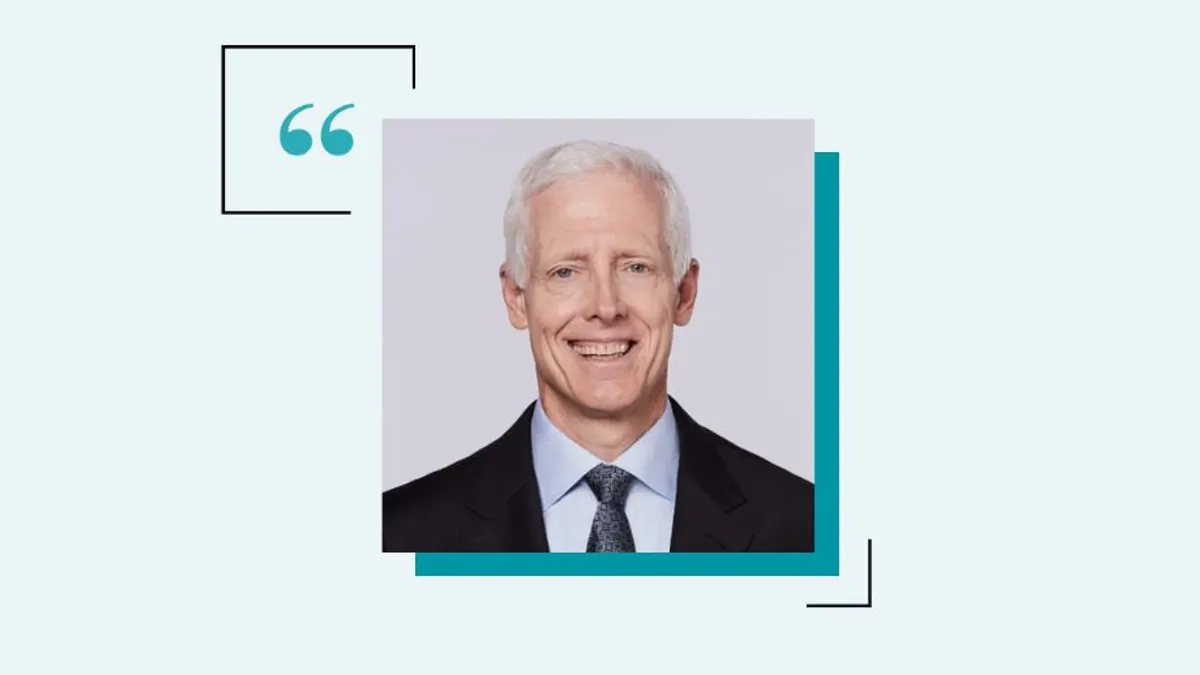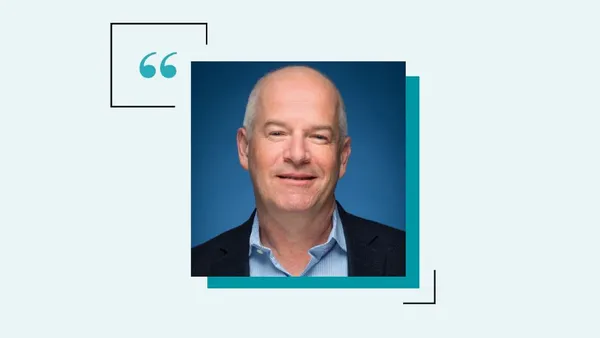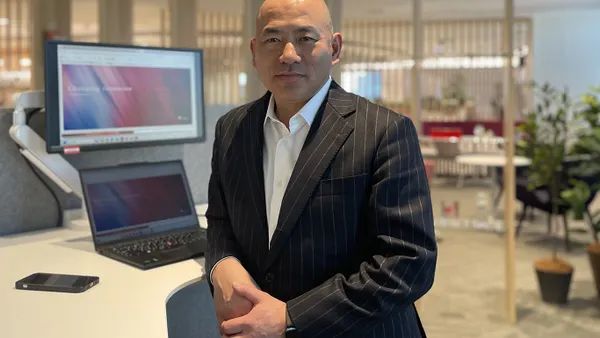When driving on interstate highways in the U.S., XPO Logistics’ trucks are hard to miss. But you won’t see trucks stamped “RXO,” XPO’s recent spinoff that is the country’s fourth largest broker of truckload freight transportation. Shippers use RXO’s digital brokerage platform to match all-size freight loads with available trucks on the spot and contract markets.
RXO’s inaugural CFO is Jamie Harris, a veteran finance chief who has been through many economic cycles and sees the opportunity in a company that is as much a tech play as a trucking one. RXO’s proprietary technology gives 10,000 goods producers access to more than 100,000 independent carriers across North America. Harris joined XPO last September, and the spinoff transaction was completed on Nov. 1. The company’s first earnings call is coming up on February 8.

RXO may need that flexibility this year. The U.S. freight market softened in the second half of 2022, with the Cass Freight Index measure of shipment volumes slowing throughout the year. For now, Harris is focused on continuous improvement and process engineering, as well as supporting the publicly held spinoff’s ambitious five-year earnings goal.
 Jamie Harris
Jamie Harris
CFO, RXO
- Named CFO: September 2022
- First CFO position: 1989
- Notable previous companies:
- SPX Technologies
- Elevate Textiles
- Coca-Cola Consolidated
- MedCath
This interview has been edited for brevity and clarity.
VINCENT RYAN: What kind of projects is the finance department tackling?
JAMIE HARRIS: The way I'm wired as a person and as a CFO and company leader, I have a continuous improvement, or process engineering, mindset. Process engineering is how we do what we do more efficiently. It translates into better service, information, and cost structure. We're largely in a people business, so process improvement around decision-making and access to data is significant.
We start our journey as a new company with a leverage ratio, net of cash, of 1.1 times, which is a great place to be. We've said publicly that we intend to keep that in the one to two range.
Finance wants to be a strategic business partner to the operational leaders in the company. We have a business president and a financial leader for every line, so we are very in tune operationally and financially. Philosophically speaking, this is the way I like to see finance organizations function.
Continuous improvement and process engineering — does any of that come from your early career at Coca-Cola Consolidated?
HARRIS: Absolutely, it does. At Coca-Cola, I was allowed the opportunity to be heavily involved in strategic planning and business operations. I ran our continuous improvement team, which looked for process engineering opportunities. When I say “looked,” predominantly [the opportunities] bubbled up from the operators. The operators on the front lines see where the inefficiencies are and where they're having difficulty servicing the customer. Our operators would raise a point — ‘Hey, I'm having a problem with this process, and it’s impacting my ability to deliver on time,” for example. “Can you send your team that works on inventory management?”
What kind of strategic planning is happening with the finance team?
HARRIS: [Before the holidays], we had a team meeting with all the financial leadership and put forth a strategic planning template for what I would call “2027 RXO.” When we did our investor days, we guided on where we saw numbers landing in 2027 [a five-year target of annual adjusted EBITDA of between $475 million and $525 million]. We have to make sure that our back office and our frontline support teams can support that growth and the infrastructure required.
With the best technology, we believe we will be one of the brokers at the top of the list when shippers narrow their population of brokers.
In a [subsequent] meeting we’ll see what continuous improvement [ideas] the teams [developed]. Some continuous improvement initiatives will be purely how decisions are made. Others will be automating a process now done manually. If we can make it easier to sell or on-board a carrier or service our last-mile customers, do something in the back-office that creates less of a distraction or less of an administrative hurdle for [others], that's a win. And little wins add up to big wins.
Before the spinoff, RXO did a $355 million bond offering. How do you feel about where the independent company is now with its capital structure and balance sheet?
HARRIS: We start our journey as a new company with a leverage ratio, net of cash, of 1.1 times, which is a great place to be. We've said publicly that we intend to keep that in the one to two range. … We have a conservative balance sheet and a very large number of options to deploy capital to grow. Our first priority is organic growth. Most of our growth in the last 10 years has been organic. We expect that to continue. … Our return on invested capital on organics is very high. We’re making investments in people, making continued investments in the technology platform, and we’re focused on productivity opportunities internally. We're going to be looking at M&A, but organic is our top priority.
What risks is RXO preparing for this year?
HARRIS: There's been a lot of commentary about the state of the economy, in the transportation sector specifically. … When there are headwinds in individual shippers’ businesses or maybe [they have] a muted peak season, they take the opportunity to narrow their list of carriers both on the asset side and the broker side. With the best technology, we believe we will be one of the brokers at the top of the list when shippers narrow their population of brokers. From that perspective, we think there's an opportunity to take market share in a highly fragmented industry.
Wherever we are in the [economic] cycle, we will recover [from a downturn] pretty quickly. Our company benefits when there's a quick move in volume. We're able to ramp down if we need to, but we're also able to rebound. … So we're managing closely in this economy, but we also have to invest to make sure we're prepared to take advantage of the recovery.
![]()














